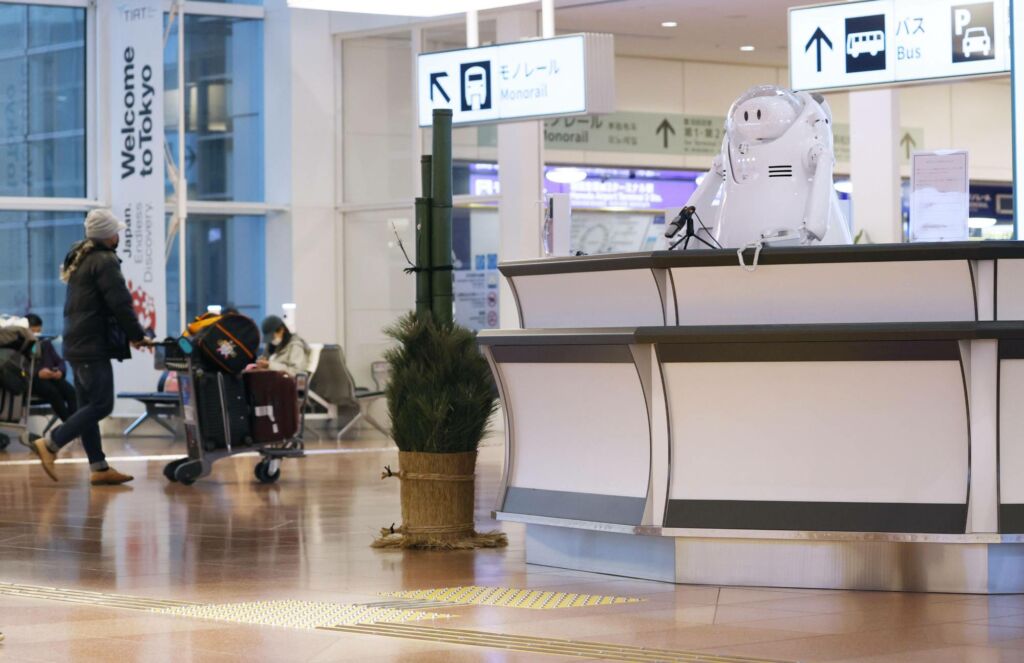Member? Please login
Abe the iconoclast’s mixed legacy

Written by Sterling Content
September 11, 2020
Japan News, Past Event Round Ups
Prime Minister Shinzo Abe’s shock resignation on August 28 due to ill health brought to an end a near eight-year period of political stability for Japan. The departure of the country’s longest-serving prime minister immediately raised questions over the legacy of Abenomics and Japan’s foreign policy.
For one keen Japan analyst, Abe’s departure was very timely indeed. Just a day earlier, Washington-based executive vice president of Teneo Intelligence Tobias Harris had released Abe’s biography, The Iconoclast: Shinzo Abe and the New Japan.
Harris’ work, Abe’s legacy and Japan’s post-Abe future were discussed by the author in a September 8 webinar co-hosted by the British Chamber of Commerce in Japan and Australian and New Zealand Chamber of Commerce in Japan.
As an iconoclast, a person who attacks settled beliefs or institutions, Abe’s political aim was to challenge the constraints of Japan’s post-war constitution to resume its position on the world stage, explained Harris.
“Abe comes from a political dynasty that rejected the compromises that [former Prime Minister Shigeru] Yoshida and co. made with the US occupation and institutions the US occupation introduced. He sought to alter those institutions and make Japan a more normal great power,” he said.
Yet despite Abe having “more control over the government and political system than any leader Japan has ever seen,” the Liberal Democratic Party leader failed to achieve some of his lifelong goals or fundamentally change Japan’s trajectory.
“You just have to go back to the press conference when he announced his resignation … Abe was fully aware of what he hadn’t achieved. Some of the obvious things are constitutional revision, finally settling the abductee issue with North Korea and a territorial settlement with Russia,” he said.
International, domestic successes
Despite such setbacks, Harris pointed to some significant international successes during Abe’s reign. And the expectation, he said, is that Abe’s successor will “remain invested” in Japan’s relationships with India and Australia.
“Everyone talks about the Abe–Modi relationship for example,” he said, referring to Abe’s link with Indian Prime Minister Narendra Modi. “At a business level, at a military level, at a political level, there has been so much work done between the [Japanese and Indian] governments to institutionalise that relationship. That is fundamentally changing the balance of power in the region.”
Domestically, Abe has celebrated highs and lows, Harris added. “From the beginning, [Abenomics] was supposed to be about a sustainable model of growth for the medium and long term, and the results on that front have been mixed.
“But we shouldn’t be so quick to dismiss the fact that unemployment was at record lows and the job-to-applicant ratio at record highs for a very long stretch. Abe got massive amounts of support from younger Japanese. If you were a young Japanese leaving school, you were leaving school to the best job market in decades,” he said, noting that many young Japanese never experienced job scarcity, which “made a huge difference to them over the longer term.”
Suga challenges
With Chief Cabinet Secretary Yoshihide Suga seen as a virtual certainty to replace Abe, Harris was asked what legacy Suga would inherit.
In foreign policy, he is “taking over at a moment where it’s not possible to duplicate Abe’s travels. Abe took 81 foreign trips in less than eight years … Suga won’t have that option for at least a while [due to COVID-19].”
And Japan’s next leader may not be simply the caretaker some are expecting.
“We’ve all got used to the idea that [Suga] wanted to be in the background as that’s what he’s been doing for eight years,” Harris said. “But there’s plenty of material there for him to connect with voters.
“He comes from a background of not being a hereditary politician, growing up in Akita Prefecture, rising from a lowly political secretary to being elected to the Diet, becoming a cabinet minister. He’s a formidable character in a lot of ways. A lot of Abe’s successes were due to him.”
Japan’s next leader, however, will face a number of challenges, including managing the coronavirus pandemic, as well as issues such as climate change and Womenomics.
Abe, meanwhile, could stay active on the international stage post-premiership, potentially leveraging his personal relationships with heads of state as the new leader’s personal envoy, Harris said.
Japan–US ties
With the US presidential poll approaching, Harris was asked how Japan–US relations might change under a Joe Biden administration or a re-elected President Donald Trump.
“Sometimes you hear in Kasumigaseki how bad the Obama years were,” he said. “But a Biden administration will have people who have been in government before and know the US–Japan relationship inside and out. I don’t think there’s any reason you’d see friction with Suga.”
However, while Abe managed to win over Trump early in his term, Harris said Trump’s views had not changed on US allies.
“I don’t think Abe has changed Trump’s mind,” he said, pointing out that Trump came to office with “long-held views” that US allies were “taking advantage of the US” and should pay more. “The alliance is intact, although the biggest question for Suga is how to handle host nation support talks. Those talks will start imminently, but probably won’t start in earnest until after the US election is over.”
Abe’s political resurrection and lengthy rule after his failed first stint in office is expected to make Harris’ book of interest to more than simply political junkies.
“It’s an extraordinary achievement,” said Harris. “The fact that he came back was a story worth telling.”







